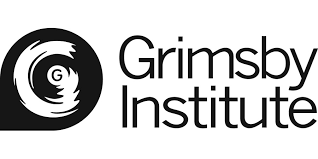Contact one of the team to discuss your training goals:
Email - contact@adrianclose.com
Equality Diversity and Inclusivity Training Course
ONE DAY COURSE OR SHORTER VIRTUAL SESSIONS
 |
We have several options for our equality diversity and inclusivity training course:
We usually deliver the full day training in person at you venue and our 3 hour and 90 minute training virtually using our Zoom account. The virtual training (like the in-person training) is very interactive with lots of activities for the team to get involved in. Contact us to discuss your training needs |
The Equality Diversity and Inclusivity Training Course Breakdown
|
By the end of the equality diversity and inclusivity training course your learners will be able to:
During the longer sessions we delve deeper into the different discriminations and the laws that protect the different protected characteristics. One of our testimonials "I found Adrian's delivery style excellent and he made time to talk through some of our issues at our level". David - (Management Team) - Sheffield College |
 £9.99 HR Skills for Managers |
The numbers
Here are some numbers to support diversity:
|
 |
Recognise this?
- Many companies hire all these great university kids with all sorts of backgrounds; all kinds of ideas brimming in their heads — only to watch them gradually remoulded to ‘fit’ the culture of the organisation.
- At most meetings, communication is dysfunctional. Many people are silent. Status rigs the discourse. People don’t say what they think but what they think the leader wants to hear. And they fail to share crucial information because they don’t realise that other people lack
- Dominant leaders are, by definition, punitive. That is how they win and sustain power.
- When faced by uncertainty, we often attempt to regain control by putting our faith in a dominant figurehead who can restore order.
- When a company faces external threats or economic uncertainty, its shareholders are significantly more likely to appoint a dominant leader.
Would it not be nice if
- People found themselves in positions of leadership, then, not by threatening or intimidating subordinates, but by gaining their respect.
- We have leaders, formal or informal, who did not demand respect from subordinates, but who earned it; whose status was not signalled by aggression, but wisdom; whose actions did not tend to intimidate, but to liberate.
- We have leaders that use self-deprecation as a rhetorical device to signal a different dynamic. They explain their ideas thoroughly because they know that colleagues who understand and endorse them are more likely to execute them with judgement and flexibility. They listen to those around them because they recognise that they are not too smart to learn from others.
Contact one of the team to book a course
As well as lots of smaller businesses and organisations, below are examples of some larger organisations who have received training from our director of learning at Ultimate Leadership Training:
























Please contact us to discuss any training requirements you have, we either deliver for you or sell you the course for your trainers to deliver to your team
Thanks for visiting our equality diversity and inclusivity training course page, here's a link to our home page. A great book recommendation from this equality diversity and inclusivity training course in Rebel Ideas by Matthew Syed
Management Skills Training Course - Leadership Skills Training Course - Coaching Skills Training Course - Human Resources Training Course
One day equality diversity and inclusivity training course, one day edi training course, 3 hour edi training course, 90 minute edi training course, bitesize edi training course, virtual equality diversity and inclusivity training course
equality diversity and inclusivity training course